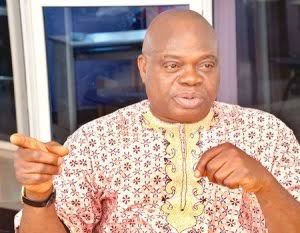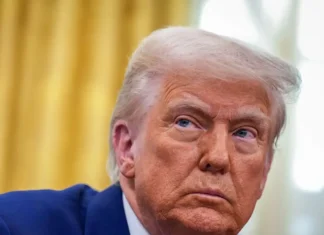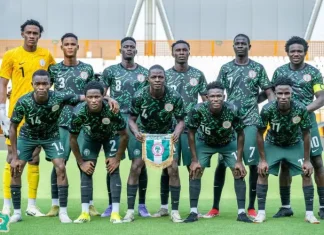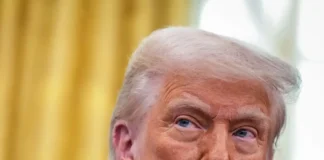By Kunle Oyatomi
Janus was the ancient Roman god after which the month of January is named. Popular images depict him with two faces, one looking back and the other looking forward. The implication is that he can simultaneously capture the past and the present and the future. January immediately follows December, the last month of the year. So Janus, it is suggested, is the indispensable partner between a departing year and the incoming one. In other words, if you look very well, you’d find the old in the new.
That’s refreshing for Nigerians, because if we found some stirrings and seeds of hope and renewal in the policy reforms of government in 2024, there’s certainty that starting with forward-focusing January with the push of god Janus, Nigeria is poised for a stronger year. After all, as I said in my last essay of 2024, Nigeria had a thousand and one reasons to be grateful to God for. Our exports outpaced our imports, unlike in the recent past. Another news we had was that global oil giants are coming to Nigeria with a $5b investment, reflecting a growing international confidence in the emerging economic climate of the giant of Africa. Still more: a Youth Bank for loans for our enterprising youngsters, mechanized agriculture to be encouraged through jmultibillion grants to universities of agriculture nationwide, the international laurels Nigeria got in sports etc. Undisputed evidences that we finished 2014 strong.
But we’re opening 2025 stronger, given again the optics Janus is presenting. Having seen what December delivered, this god of transition is assuring us of a stronger showing this year, beginning from January. I believe this is where President Bola Tinubu drew hope from as he addressed the nation and some stakeholders during New Year festivities.
The Nigerian leader admits the country is passing through times. But in his New Year message, he warned his compatriots against abandoning the track of hope.’’ Economic indicators,’’ he said, ’’point to a positive and encouraging outlook for our nation, adding he is ‘’confident that the New Year will bring brighter days.’’ Tinubu declared: “Fuel prices have gradually decreased, and we recorded foreign trade surpluses in three consecutive quarters.
Foreign reserves have risen, and the Naira has strengthened against the US dollar, bringing greater stability…The stock market’s record growth has generated trillions of naira in wealth, and the surge in foreign investment reflects renewed confidence in our economy.’’
The president however didn’t with pretend he’s an unrealistic leader, feigning ignorance about the hardship in the land. So, he chipped this in: ’’…the cost of food and essential drugs remained a significant concern for many Nigerian households in 2024.’’
Yet, there was no hint of despondency in Tinubu, even after talking of challenges. Instead, he spoke of his administration’s iron-cast determination to intensify ‘’efforts to lower these costs by boosting food production and promoting local manufacturing of essential drugs and other medical supplies. We resolute in our ambition to reduce inflation from its current high of 34.6% to 15%. With diligent work and God’s help, we will achieve this and provide relief to all our people.’’
The Nigerian leader moved the hearts of all with this solemn promise, and “` no therefore“` it wasn’t quite a surprise when the following day the newspapers were emblazoned with headlines saying, Tinubu to cut down inflation to 15%. There were other great power points in the president’s nationwide address. But the inflation slash pledge was a world beater, given what havoc the demon has caused for pockets, markets and the economy generally. It deserved the attention the editors gave it in making it hog the headlines.
And by the time President Tinubu met Vice-President Kashim Shettima, the leaders of the National Assembly and former principal officers of the legislative chambers, all of who went to visit him in Lagos during the end-of-year holidays, the message was still that of optimism. Tinubu spoke of what he called ‘’the spirit of can do’’ we must adopt to sail through the storms of the moment. As he thanked the lawmakers for the ‘’encouragement’’ he has received from them over the last 19 months he’s been in the saddle, Tinubu said he is ‘’determined to take Nigeria to the Promised Land.’
The president’s allusion to the Biblical Promised Land must remind us that although the children got to that destination, it was after a grueling battle against the odds. There were internal and external foes that hindered the journeys of the Israelites. Sometimes there was a leadership tussle that distracted Moses, their leader. He did not always enjoy their cooperation when he took decisions meant to move the whole nation forward, even when it was clear that he had good intentions. That Moses was acting on the instructions of God would not even move the children of Israel to change their mind. Now, Moses wasn’t a superman; nor was he an angel, not given to base emotions and weaknesses. So, sometimes he was driven to fall for their provocations. Once, he challenged God, asking if he gave birth to them and he was given the burden of carrying them to the Land of Canaan.
Despite all these twists in the tale, Israel got to the Land of Promise, helped by God and the laws Moses gave them. They held on to hope that they could make it, even if giants of despair and downturns rose to attempt to crush them.
In Nigeria of 2025, we must be driven by hope that we are under an administration that wants to do what a succession of governments failed to do over the decades, namely taking the bull by the horns and kick starting the phase of enduring socioeconomic development for the giant of Africa, which doubles as the world’s most populous black nation.
That’s our Land of Promise. We can’t get there without hope and faith in our leaders’ and without partnering with them every step of the way in the execution of their ambitious programmes, regardless of the challenges.
Happy New Year!
Oyatomi Esq, is a member of the board of the Independent Media and Policy Initiative, IMPI, a think tank based in Abuja, Nigeria’s capital.
Share your story or advertise with us: Whatsapp: +2347068606071 Email: info@newspotng.com

















